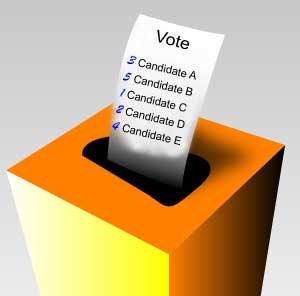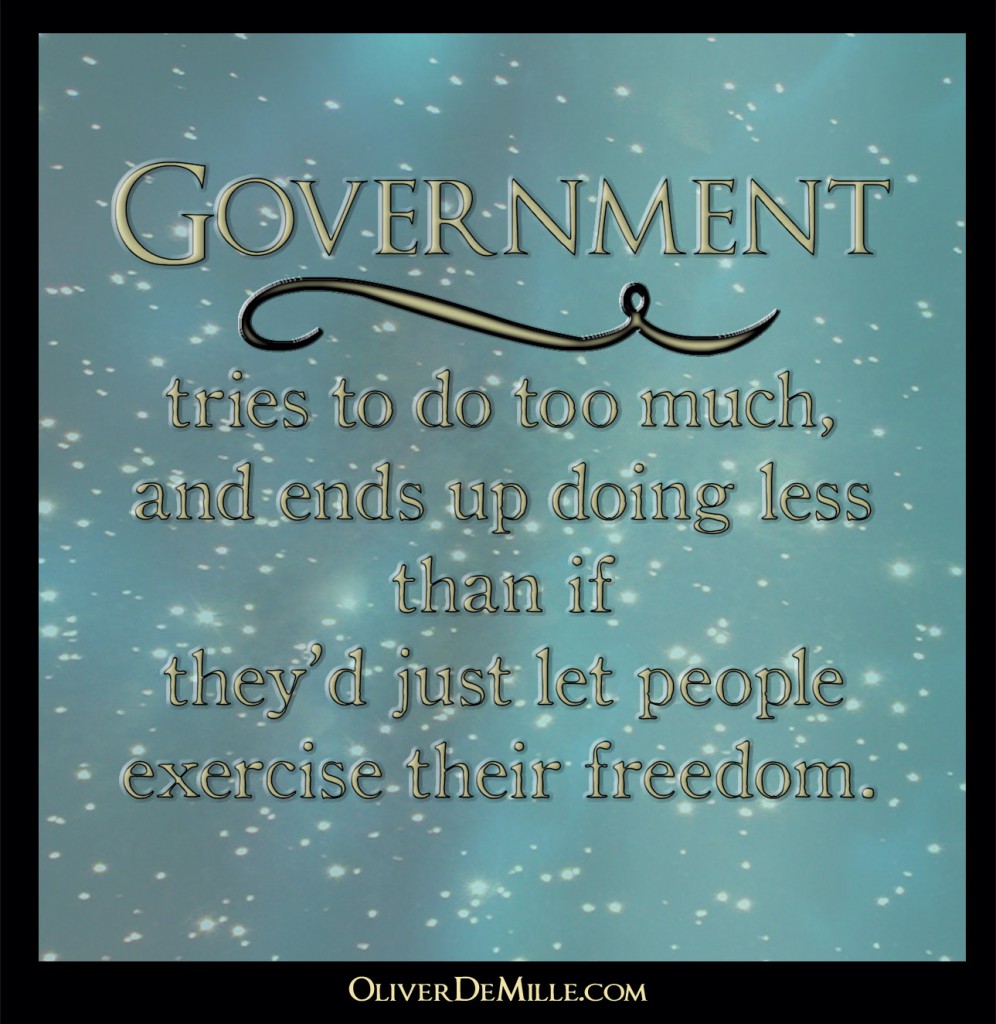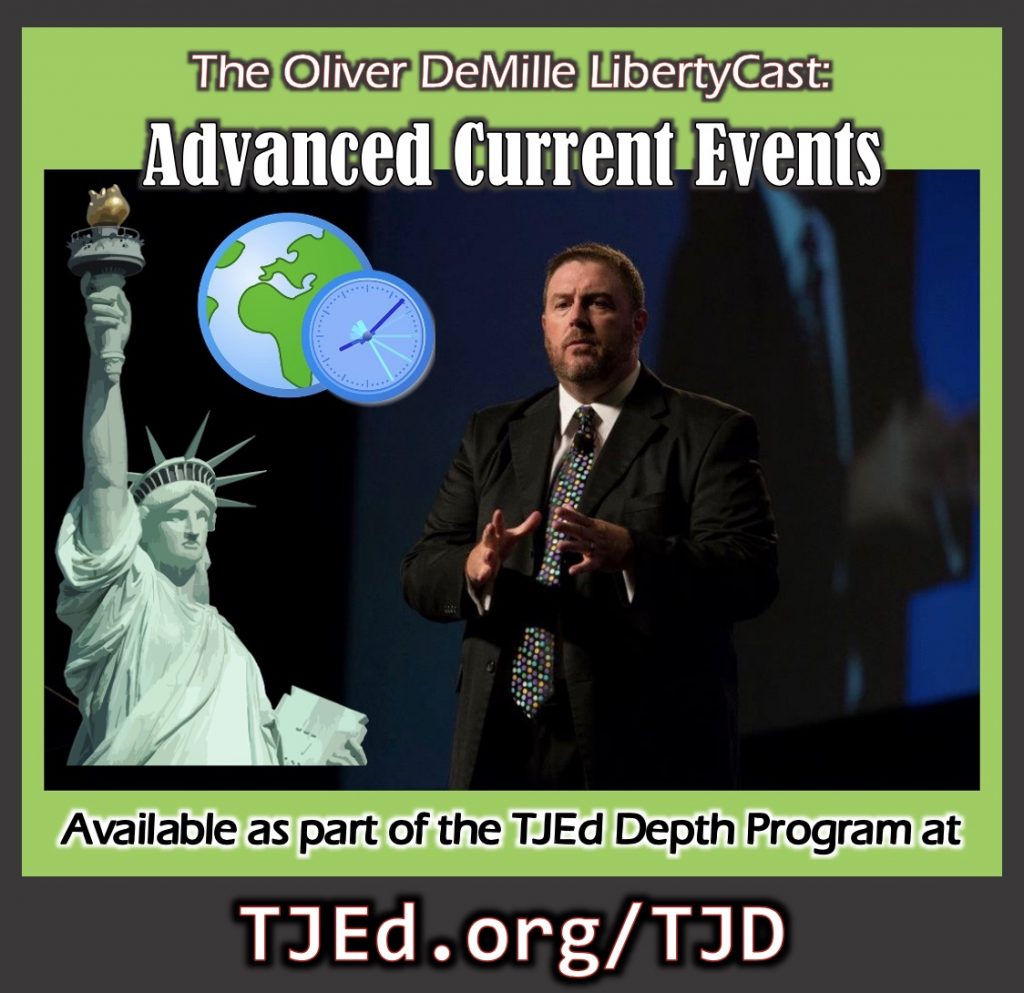The Best Books of 2022
January 2nd, 2023 // 5:16 am @ Sara DeMille
JUST IN TIME TO READ THEM IN 2023!
An Invitation
 Great reads are, well…great. They move you. Or change you. Or invite you to face challenging realities, or approach the future in better, more effective ways. They empower you, or help you do other equally important things.
Great reads are, well…great. They move you. Or change you. Or invite you to face challenging realities, or approach the future in better, more effective ways. They empower you, or help you do other equally important things.
A great read is a life-changing event. As Thomas Jefferson wrote to John Adams in the summer of 1815:
“I cannot live without books.”
And to Abigail Adams he penned the famous words:
“…my greatest of all amusements, reading.”
To James Madison he added a longer view:
“Books constitute capital. A library book lasts as long as a house, for hundreds of years. It is not then an article of mere consumption but fairly of capital.”
To founding leader Richard Rush he put it bluntly:
“Books are indeed with me a necessary of life.”
Ironically, to write out everything Thomas Jefferson wrote down about books and reading would require a very long book.
In trying to emulate his passion for books, along with the pondering and deep consideration that naturally occurs when you read almost constantly, I habitually take a few moments at the end of each year and look over the list of the books I’ve read in the last 12 months. And, invariably I find myself listing and ranking the best ones—and debating which is the #1 vs. #2 vs. #3 TOP book of the year. I seldom do this with fiction books, though I read a lot of them. In fact, Jefferson did too. He wrote:
“Some of the most agreeable moments of my life have been spent in reading works of imagination [fiction, literature] which have this advantage over history [non-fiction]: that the incidents of the former may be dressed in the most interesting form, while those of the latter must be confined to fact. They cannot therefore present virtue in the best [or] vice in the worst forms possible, as the former may.”
The List
So, every year I write a list of the top non-fiction books I’ve read. This year was no different. Here are my Top 7 Non-Fiction Reads of 2022, in order, starting with the best, TOP BOOK #1 and down the list. Most lists like this ramp up to the very best book and present it last, but I tried that and just didn’t like it.
I’m shooting straight here, top 7 best books in order:
- The Psychology of Totalitarianism, by Mattias Desmet. This book tackles the biggest challenge we face in our modern world right now. It’s a must read for anyone who cares about freedom. And the challenges it outlines are mostly still ahead—so read up! It’s vital prep for what’s coming… I’ll be addressing it in several classes and events coming in 2023! And so will Ian. So excited…
- The 90-Degree Turn, by JB Fred Eberlain. This is a great, great read—I wish every American would read this and think about it seriously. It addresses what I think is the second biggest challenge faced by America and other free nations right now. Also, when you get to the section on Solutions in this book, compare his proposals to those outlined by Orrin Woodward and myself in our book LeaderShift—together the combined list of solutions is really powerful.
- The Right and Wrong of Compulsion by the State, by Auberon Herbert. All right, I’ll admit that this book has a boring-sounding title, except maybe to history/political nerds like me. And the author’s name, Auberon, doesn’t help—especially with the surname “Herbert” attached. It just feels stuffy all around. But look past that! Because this is one of the best books you’ll ever read in your life. It’s very short, only about 30 pages (or a few more if you find it in small booklet form). And this is the best book on the basic meaning of freedom you’ll ever see. It’s better than The Law by Bastiat, and anyone who cares about freedom simply must read this book. It’s brilliant.
- Discourses on Davila, by John Adams. Maybe the best book I read during 2022, even though I’ve read it a dozen or more times before. It’s a life-changer, if you take the time to really learn from it. It may be the most important book you read this decade, and the best book out there about our times, our era in history—even though John Adams wrote it over two hundred years ago. (By the way, you can get it for $30-$50 as a separate title, or you can save money and buy it for around $12 as part of The Works of John Adams, Volume 6, easy to find on Amazon.)
- The Righteous Mind, by Jonathan Haidt. This book was written in 2013, but I didn’t read it until 2022 when my son Oliver found it and sent me a passionate recommendation. It’s deep, and incredibly timely. Fabulous read. It will forever change the way you see modern politics. It brings a whole new understanding of things, like the first time you read The Fourth Turning by Strauss & Howe.
- 100 Games to Play with a Stick, by author unknown, published by DSS Games. I wish I would have known about this book during the Covid-19 lockdowns, because I would have recommended it to everyone I know. But it’s not too late. It’s fun, it’s funny, and on top of that, it’s hilarious. It’s a book for our time, in a profound way. You have to read it, and really think about it, to get how important it is. Truth: It heals what ails you…
- Resilient, by John Eldredge. This book takes a decidedly Christian and religious tone, which you may or may not like, but it’s a great read regardless of your religious/political views. What a poignant message. The author assumes that everyone right now is experiencing some real post-Covid-PTSD-type symptoms, and the book is meant to heal. It’s extremely effective; even where I disagreed with some things in the book, I still found myself feeling warm, healing, relaxed. Stress I didn’t even realize I was carrying just melted away as I read. It works. Read it, and share it. We need it.
Great News
Concerning the topic of books as the best media, Jefferson wrote in a letter to John Norville in 1807:
“…the man who never looks into a newspaper is better informed than he who reads them; inasmuch as he who knows nothing is nearer to truth than he whose mind is filled with falsehoods & errors.”
With modern media the way it is, I just couldn’t resist including this quote. And here’s how Jefferson put it elsewhere, with less sarcasm, pointing out the importance of books:
“I have given up newspapers in exchange for Tacitus and Thucydides…and I find myself much the happier.”
He considered great books better media than other kinds of news, and he also considered great books a better source of education than formal lectures and other systems of schooling that don’t center around the best books. His wisdom is still relevant today, perhaps more than ever.
Note, by the way, that the main theme of Tacitus was the loss of political freedoms and personal liberty that led to the decline and fall of the Roman Republic and the takeover of the Empire, and how it all happened; Thucydides’ main contribution was a study of how Athens lost its freedoms and went from the Greek Golden Age standing as a beacon of freedom to a fallen people enslaved by the Spartan Empire and its totalitarian socialist government.
Bread and Circuses
Both peoples, the Greeks and later the Romans, lost their freedoms and prosperity in a very short period of time, and hardly any of them realized what was happening, or how it was occurring, until it was too late. Jefferson hoped Americans would learn from this and not repeat it, starting by turning to the great books for news and education, rather than the bureaucratic media and bureaucratic schools of the day.
Talk about real news. Actual wisdom. If only such books were still available to us today. But with so many shows and movies to watch on streaming platforms, not to mention so many loud and angry news shows each evening, who has the time? As for education, such books get in the way of this week’s career-prep/college-major assignments and so many interesting posts on the smartphone. Oh well… Freedom will have to wait. It’s a generational disease: generations born to freedom and prosperity are notoriously distracted by career (bread) and entertainment (circuses). In fact, they’re more than distracted—they’re convinced they are entitled to these things, and they expect them to be provided easily and without sacrifice or effort. Writers like Tacitus and Thucydides address this situation, its results, and what to do, but…
Who reads that stuff?
As for the seven Top Books of the Year listed above, agree or disagree with some of the details in each, but they are all worth reading! I wouldn’t skip any of them. They are Tacitus and Thucydides for our time, especially #s 1-4.
Enjoy…
Want more up-to-the-minute commentary by Oliver DeMille?
Join TJEd Depth for your continuing education, and get access to the Oliver DeMille LibertyCast on Advanced Current Events and even get day-in-day-out access to mentoring and discussion on a live discussion forum with Oliver and a select few participants!
Visit TJEd.org/TJD for more details >>
Category : Blog &Book Reviews &Citizenship &Culture &Current Events &Education &Featured &Government &History &Information Age &Leadership &Liberty &Politics &Statesmanship
Representative to Popular Form
June 7th, 2016 // 10:12 am @ Sara DeMille
Guest Post by Ian Cox
Midlife Crisis of U.S. Politics?
 Most voters think that whichever candidate gets the most votes will take the nomination for their party, but the reality is more complex.
Most voters think that whichever candidate gets the most votes will take the nomination for their party, but the reality is more complex.
More people are hearing about the “contested convention” that looks likely for the Republican Party. Even the Democratic race has seen a similar shake up: Sanders often takes the popular vote, but Clinton wins more delegates.
As Ezra Klein from vox.com put it:
“Americans believe their elections are far more democratic than they actually are, and that’s because the most undemocratic institutions—like super delegates and the Electoral College—tend to follow the popular will. But that’s because the popular will is usually clear and easy to follow.
“This is a year, in other words, when voters on both sides will be looking for reasons to doubt the results of their primaries. And they will find plenty of them.”[1]
In a contested convention for the Republican Party most delegates will be able to vote however they would like. This will probably leave their constituents back at home a little upset if they don’t follow the popular vote. Maneuvering has already been taking place to get delegates who are sworn to one candidate by their State’s popular vote, but who would vote for another candidate in case of a contested convention.
Democrats have super delegates who aren’t tied to popular vote and can cast their vote wherever they see fit. They may “pledge” to one candidate during the primaries and this usually coincides with the popular vote of their state, but it doesn’t have to.
These are just two aspects of the labyrinth of a republican form of government. In other words, a government by delegation or by representation. Every state has its own method of voting for the president, as well as party rules, and how the state itself runs.
Which One?
The question arises here, are we a government of delegation or a government of popular vote? It seems that the people think it’s popular vote—and get confused, annoyed, and angry when thwarted. But the party leaders and government are living by the rules of representation (granted, this is pretty much by default because they are required by law to abide by these rules).
The people are playing Baseball while the delegates are playing Football, and the rules of the two games don’t mix very well. In the overlap, we’re getting major chaos and only one side can prevail.
Before we continue, let’s take a few steps back and take a good look at these two forms of government.
Popular vs Delegate Societies
A pure democracy exists where the majority decides what happens. If 51% of the population wants free health care, then it passes a law and it’s the duty of the officials to make it happen. If 49% wish for slavery, they can’t pass as law because there is no majority.
Things move quickly, and usually vehemently, in a society ruled by solely popular vote. Even Aristotle categorized democracy as a bad form of government. Most of the founding fathers studied many different forms of government as they were putting together the Constitution of the United States. John Adams said:
“Democracy… while it lasts is more bloody than either aristocracy or monarchy. Remember, democracy never lasts long. It soon wastes, exhausts, and murders itself. There is never a democracy that did not commit suicide.”
Think of the book Les Miserables by Victor Hugo, or The Scarlett Pimpernel by Emma Orczy, or any history book covering the French Revolution, and you’ll get the picture of what everyone was so worried about when it comes to democracies.
On the other hand, a republican form of government exists where the populace gets together and votes for delegates or representatives who then decide what laws to establish. Instead of the populace voting for everything, their representatives or delegates take the duty to maintain society through necessary law-making and executing those laws. A classic example of this is the Roman Republic or the Roman Senate.
Another great example of this is our modern Presidential election. Every four years we have a national election—which is partly done by popular vote and partly done by a delegated vote, depending on the state—and a great number of citizens rally around this great cause. Once it is over most people hibernate again until something exciting comes along, like the next presidential election.
If you’d like to know more of what the role of the average citizen should be during this “downtime,” dig into these two books Oliver DeMille wrote for this very purpose:
- Freedom Matters by Oliver DeMille
- The U.S. Constitution and the 196 Indispensable Principles of Freedom by Oliver DeMille
What Is Our Identity?
When the endgame is unknown it’s pretty much impossible to win. If I’m given a golf ball on a soccer field, and I’m told to make the loop, what am I supposed to do? What if I’m not given any instructions? Am I supposed to be on offense? Defense? Maybe play goalie. Is there even supposed to be a goalie? Am I allowed to block, where am I to focus to help score, do what I want a high score or a low score? Is there a scoreboard?!
Not knowing what you don’t know can be very frustrating, stressful, and leave you without any hope of making progress. We no longer seem to be a nation with a unifying identity. A similar thing happened in the 1770’s between the colonies and the British, again in the 1850’s-60’s with the Northern States and the Southern States, also during the 1940’s with bigger government deals as well as global community issues. We’re in another such period; over the next few years we will likely see society shift again in major ways.
Will it be a shift towards more opportunity, success, and freedom, or something worse?
What is the Coming Shift?
It might be too soon to tell, but this presidential race might just be an omen of the coming shift; a microcosm of what the future holds for the “United” States of America.
This disconnect and misunderstanding of how the elections actually work could be the perfect setting for a democratic revolt. The populace might demand, despite whatever laws, rules, and constitutional measures are in place, that government listen to the voice of the people. To do what the people vote for and right away. No more of this arguing, debating, and political maneuvering in Congress. Let’s get it done!
The checks, balances, and the democratic republican constitutional form of government we now see hanging by a thread could very well be severed and swing us heavily towards a government by the whims of men.
Now, because of the numbers, I know many who read this will still be asking: but why is this shift a bad thing? Isn’t it bringing us more freedom? Isn’t it getting the people what they have so long desired? No more ridiculous laws or government officials telling us what we can and cannot do; we will take the responsibility in our own hands!
If men were angels this would probably work out much better, but as history has shown again and again this is not the case. Remember the quote by John Adams earlier? Remember your French Revolution history? Logically we might “know” these things, but still! Look at what’s happening today in our society. The people are being held back as corruption in high places seeps further and further.
Who will win this fight? The corrupting upper crust of society, or the beaten down and squished populace?
Or is there a third option?
Another Way
Think of it this way: when societies were ruled by the whims of the masses, the leaders that rose to the top were Hitler, Mussolini, Stalin, Nero, and the like. Historically these are the type of men, and women, who rise to the top and gain control.
On the flip side of this coin is the rule of the wealthy or privileged. Enter the Feudal Age and the ancient and modern systems of slavery. King Henry the VIII wasn’t elected or put on the throne by a revolution of discontented people, he was born into the position. He was at times just as bad for the people and to the people as the tyrants mentioned before. That’s because these monarchs or oligarchies still rule by the whims of men.
What our Founders did differently—as did every other truly free people in the history of the world—was study freedom deeply, and then build organizations or communities that solved the issues of their time. In other words, they took responsibility to get things done themselves, and they developed their leadership to make sure their ventures and communities would succeed.
Let’s Pay the Price
What every free people in the history of the world did different was set up checks and balances, forms and processes, and auxiliary precautions to guard against these destructive tyrants, both of the general people as well as the individual tyrant and everything between. It’s safer in the long run to establish laws, rules, and forms that are no respecters of persons. This has been the formula for establishing freedom for generations.
This means the rules of the game must be understood and upheld by the masses. If the average citizen doesn’t, then we’ll quickly learn to vote for any and every benefit we can. Or we’ll have the threat of having our representatives and upper crust of society take power and rule with an iron fist—squashing the general populace.
I’m not saying the current forms and systems are perfect, but we should understand why they were established in the first place. If we throw off the bonds that make us free we will quickly spiral into an era of major losses of freedom and opportunity for generations to come.
Let’s pay the price of understanding the rules of the game to maintain freedom.
[1] “This presidential campaign is developing a legitimacy problem,” by Ezra Klein Vox.com, April 19, 2016
Category : Aristocracy &Blog &Citizenship &Current Events &Government &Independents &Liberty &Politics
A Huge Surprise! by Oliver DeMille
July 21st, 2014 // 6:09 am @ Sara DeMille
My Eureka Moment
 It was downright amazing! Surprising, in fact. Shocking. Actually, I don’t think the American founding generation would have been surprised at all. They would have expected it. But for me, raised in our modern world, it was a true Eureka!
It was downright amazing! Surprising, in fact. Shocking. Actually, I don’t think the American founding generation would have been surprised at all. They would have expected it. But for me, raised in our modern world, it was a true Eureka!
I should have seen it coming, to tell the truth. In fact, if someone had asked me beforehand to predict what would happen, I’d have put on my forecasting cap and I…probably still wouldn’t have known. But nobody asked, and I didn’t give it a thought. I guess I’m getting ahead of the story, though, so let’s back up a bit.
Petitions and Amazing Happenings
Last summer and fall a number of people in our small town went around getting citizens to sign a petition. The city had decided to raise taxes to meet the growing demands, and some people thought this was a bad idea. The truth is, the leaders in our town are very dedicated and honest—the ones I know personally, which includes most of them, are people of deep integrity.
The same is true of the citizens who talked to me about signing the petition. I studied the issue and decided that, in my opinion, we really didn’t need the additional services the tax increase would cover. I signed the petition.
So did a lot of people, and the taxes were postponed—at least for a while.
Then came the annual 4th of July celebration. Of course, one of the great traditions of Independence Day is watching the fireworks. This was suggested by founding father John Adams, and it has been a ritual of growing up for most Americans ever since.
But fireworks were one of the things cut by postponing the tax increase. As the 4th approached, this became a topic of discussion across back fences, near mailboxes, and anywhere else neighbors met. “I voted against raising taxes,” one neighbor told me, “but I’ll sure miss the fireworks.” He shook his head sadly.
I found myself agreeing with him. I repeated his sentiment several times during the last half of June.
Time passed, as it always does, and the holiday arrived. There was a parade, snow cones, barbecues and races. When evening came, my kids asked if I wanted to drive to the neighboring town and watch the fireworks. I told them to go ahead. On the one hand I felt a bit like a hypocrite for voting against the taxes and then driving to the next town for their tax-funded fireworks. But mostly I was just worn out from the day and wanted to stay home. “If only we could just sit in our yard and watch the fireworks like every year,” I heard my voice saying in spite of myself.
The kids left, and Rachel and I sat in the yard and watched dusk turn into darkness.
Then an amazing thing happened. Our neighbors just down the road begin shooting off amazing fireworks. Because the city wasn’t providing fireworks, policies were relaxed and people were allowed to fire up the kind of fireworks usually only done by the local government.
Firework Economy
We watched in awe. Because our home is on a hill, the bursts seemed close enough to reach out and touch.
But that was just the beginning. Right after the neighbors began their display, another one started just down the road. Then another, and another. We walked the stairs to our balcony and looked out over the valley. Every neighborhood seemed to have the kind of fireworks that in past years have only been done by the city. We counted seventeen distinct places that shot off huge firework displays.
 We watched them simultaneously. This went on for over two hours. The city’s usual annual display seemed to last about a half hour or so—I have no idea the actual timing, just my recollection. This one went on and on. An hour into this, three more neighborhoods started. Some ended, and new ones began.
We watched them simultaneously. This went on for over two hours. The city’s usual annual display seemed to last about a half hour or so—I have no idea the actual timing, just my recollection. This one went on and on. An hour into this, three more neighborhoods started. Some ended, and new ones began.
We watched in awe.
It was by far the most amazing fireworks display I’ve ever witnessed. All provided by private citizens. As far as I know, all paid for without tax funds.
As we watched, and as it continued well into the night, I turned to Rachel and said, “I can’t believe it! The city government never did anything close to this! Look at what the people are doing, all by themselves.”
She nodded. “Government tries to do too much,” she said, “and ends up doing less than if they’d just let people exercise their freedom.”
“Can you imagine what would happen to our economy if the government would get out of the way and let free enterprise work?” I asked.
“Instead of standing on a balcony watching the best fireworks ever,” she replied, “we could stand back and watch the nation’s economy boom and blossom. There would be jobs, progress and more prosperity everywhere!”
The One Thing That Works
We sat and watched in silence for a long time. The explosions boomed against each other and echoed through the valley. Sometime close to midnight things died down, and shortly after that our kids came home. They piled out of the van laughing and talking.
“Did you see all that?” our twenty-year-old asked enthusiastically. “That was the best fireworks display ever!”
“We didn’t even leave town!” our seventeen-year-old said. “We started to go, but then all these places started shooting up fireworks. They were everywhere! In every direction…”
“So we just pulled over at the park and got out to watch them!” our fourteen-year-old interrupted. “It was so amazing!”
I looked at Rachel. “Someday the government will get out of the economy and tell the people they’re on their own…and then we’ll see what freedom can really do in America.”
“That’s what you’re here talking about?” asked our twenty-two-year-old daughter with a big smile, baby in arms.
We laughed. “Well, it is the 4th of July” I said. “Isn’t this is exactly what every American should be talking about today?”
Long after the 5th of July arrived I rested on my bed, eyes open, unable to sleep. One thought just kept coming back to me, over and over.
Freedom works.
Today’s America should give it more of a try. Deregulate and let free enterprise shine and flourish. Most people today probably can’t even imagine it, but I bet it’s amazing what the people of this nation would rise up and do if given the chance.
Freedom works.
America should try it…
 Oliver DeMille is the New York Times, Wall Street Journal and USA Today bestselling co-author of LeaderShift: A Call for Americans to Finally Stand Up and Lead, the co-founder of the Center for Social Leadership, and a co-creator of TJEd.
Oliver DeMille is the New York Times, Wall Street Journal and USA Today bestselling co-author of LeaderShift: A Call for Americans to Finally Stand Up and Lead, the co-founder of the Center for Social Leadership, and a co-creator of TJEd.
Among many other works, he is the author of A Thomas Jefferson Education: Teaching a Generation of Leaders for the 21st Century, The Coming Aristocracy, and FreedomShift: 3 Choices to Reclaim America’s Destiny.
Oliver is dedicated to promoting freedom through leadership education. He and his wife Rachel are raising their eight children in Cedar City, Utah
Category : Blog &Citizenship &Community &Current Events &Economics &Entrepreneurship &Government &Leadership &Liberty &Politics &Prosperity












